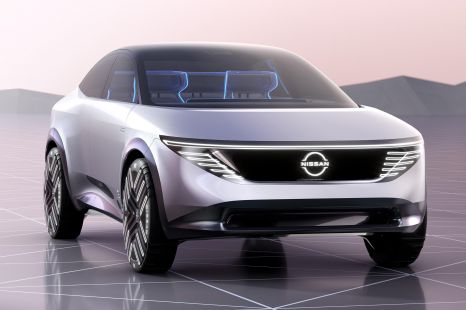

William Stopford
Nissan locks in three new electric cars for expanded UK factory
2 Years Ago
The 2023 Nissan Leaf may be in its autumn years, but it’s received a refresh with tweaked exterior styling and a new digital rear-view mirror.
The updated model is on sale now and base price is up by $1000 to $50,990 before on-road costs, while the longer-range Leaf e+ is now also $1000 more expensive at $61,490 before on-roads.
Where expert car reviews meet expert car buying – CarExpert gives you trusted advice, personalised service and real savings on your next new car.
| Configuration | Price From* |
|---|---|
| Automatic, 5-door Hatchback, Electric, FWD | $49,990 |
| Configuration | Price From* |
|---|---|
| Automatic, 5-door Hatchback, Electric, FWD | $60,490 |
Where expert car reviews meet expert car buying – CarExpert gives you trusted advice, personalised service and real savings on your next new car.
See our comprehensive details for the Nissan Leaf
The dimensions shown above are for the base model.
See all 2022 Nissan Leaf DimensionsWhere expert car reviews meet expert car buying – CarExpert gives you trusted advice, personalised service and real savings on your next new car.
CarExpert High Resolution Photos of the Nissan Leaf
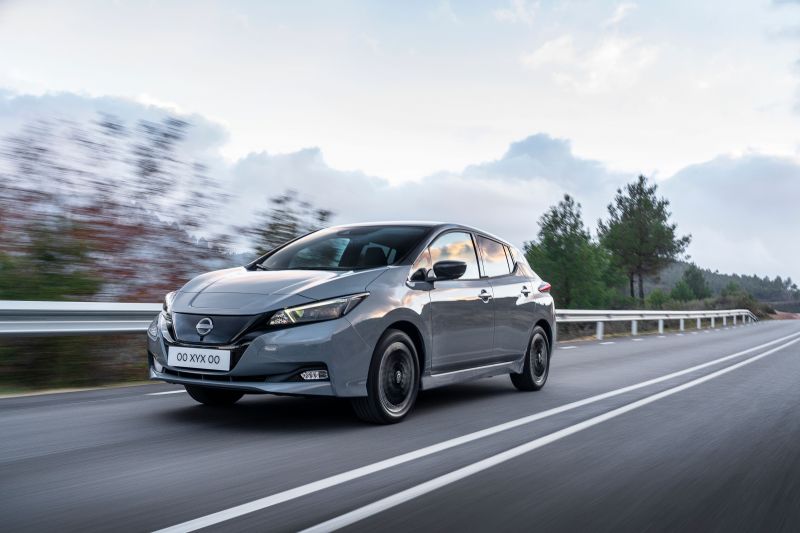
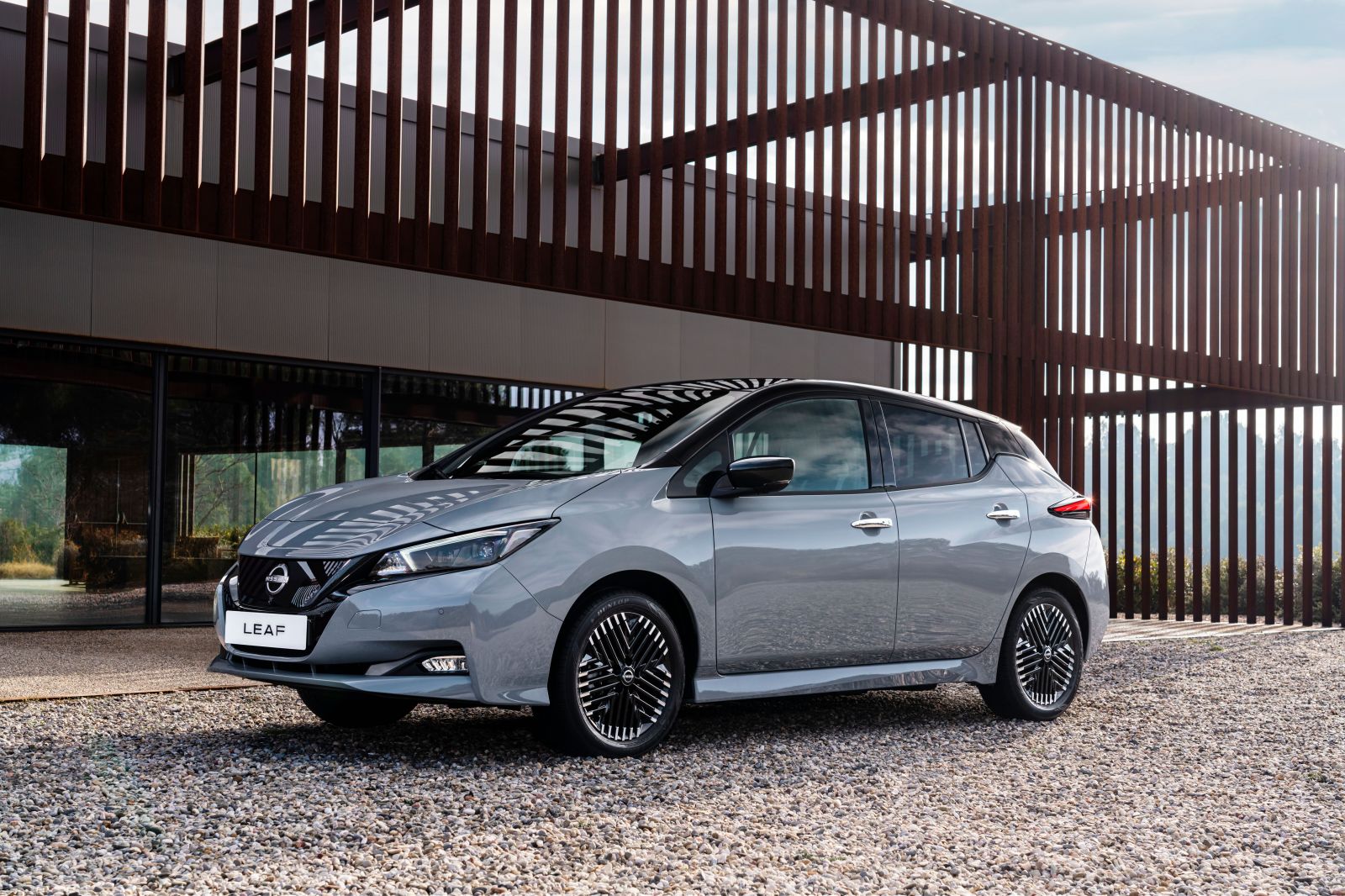
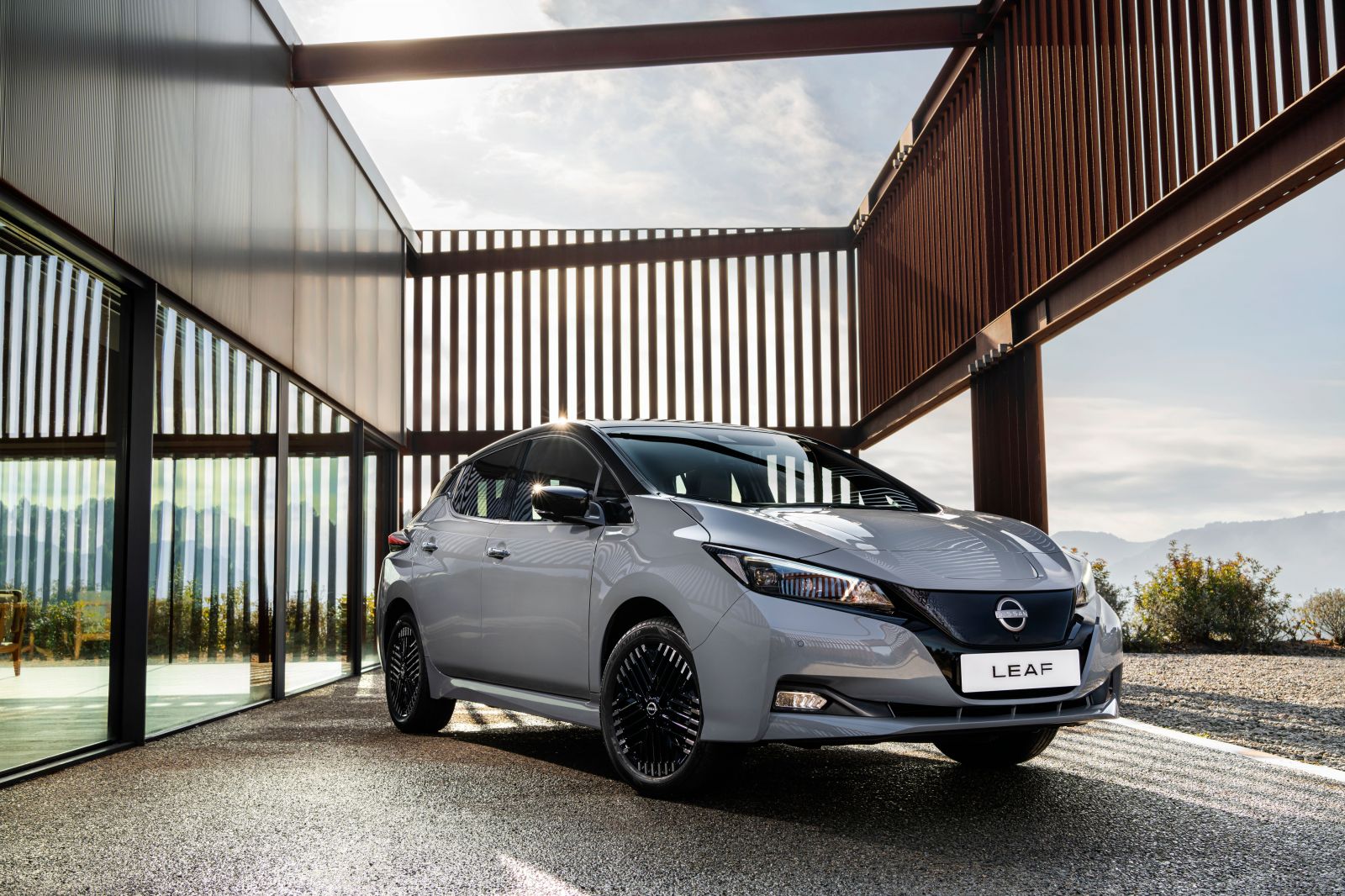
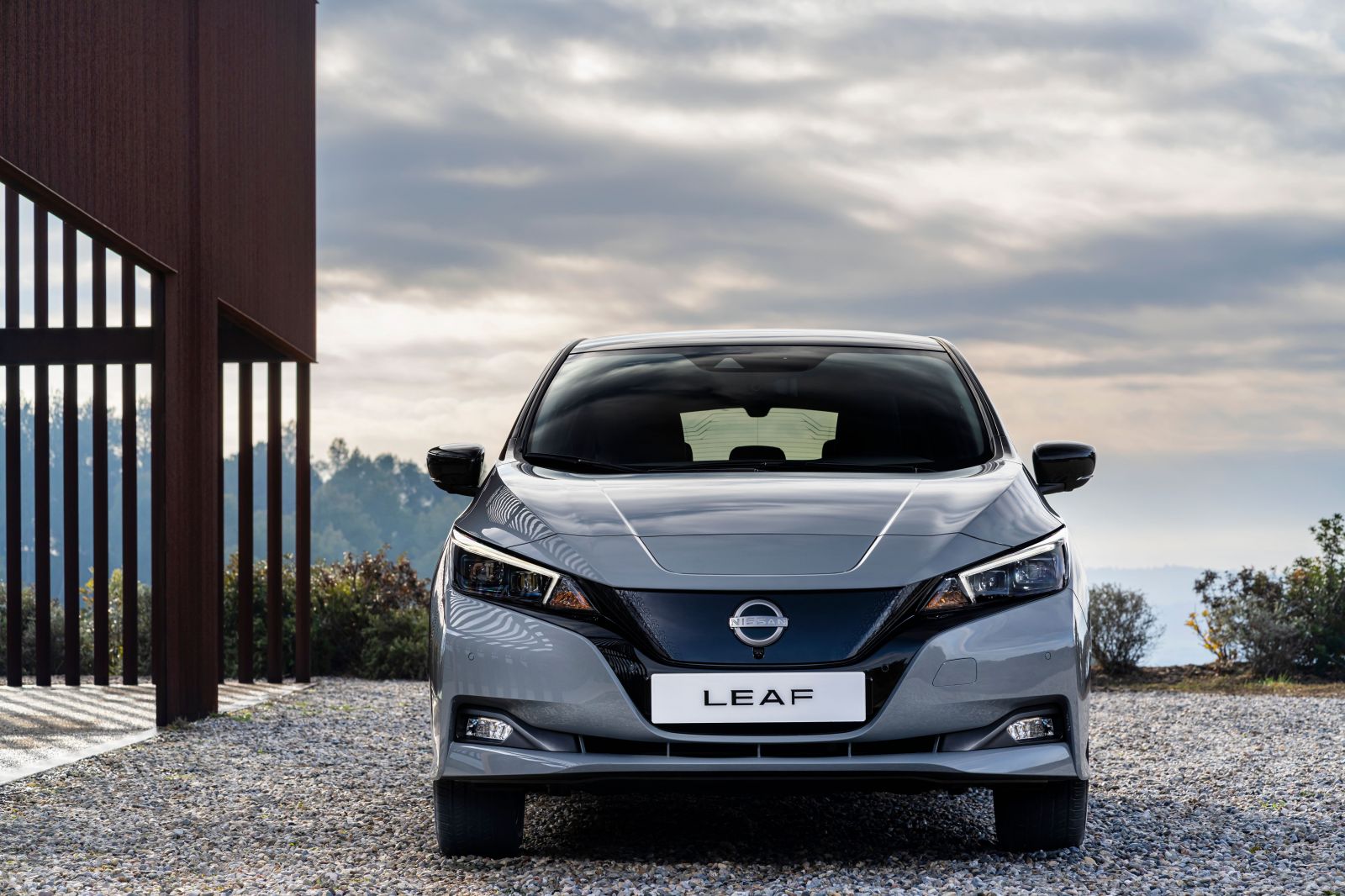
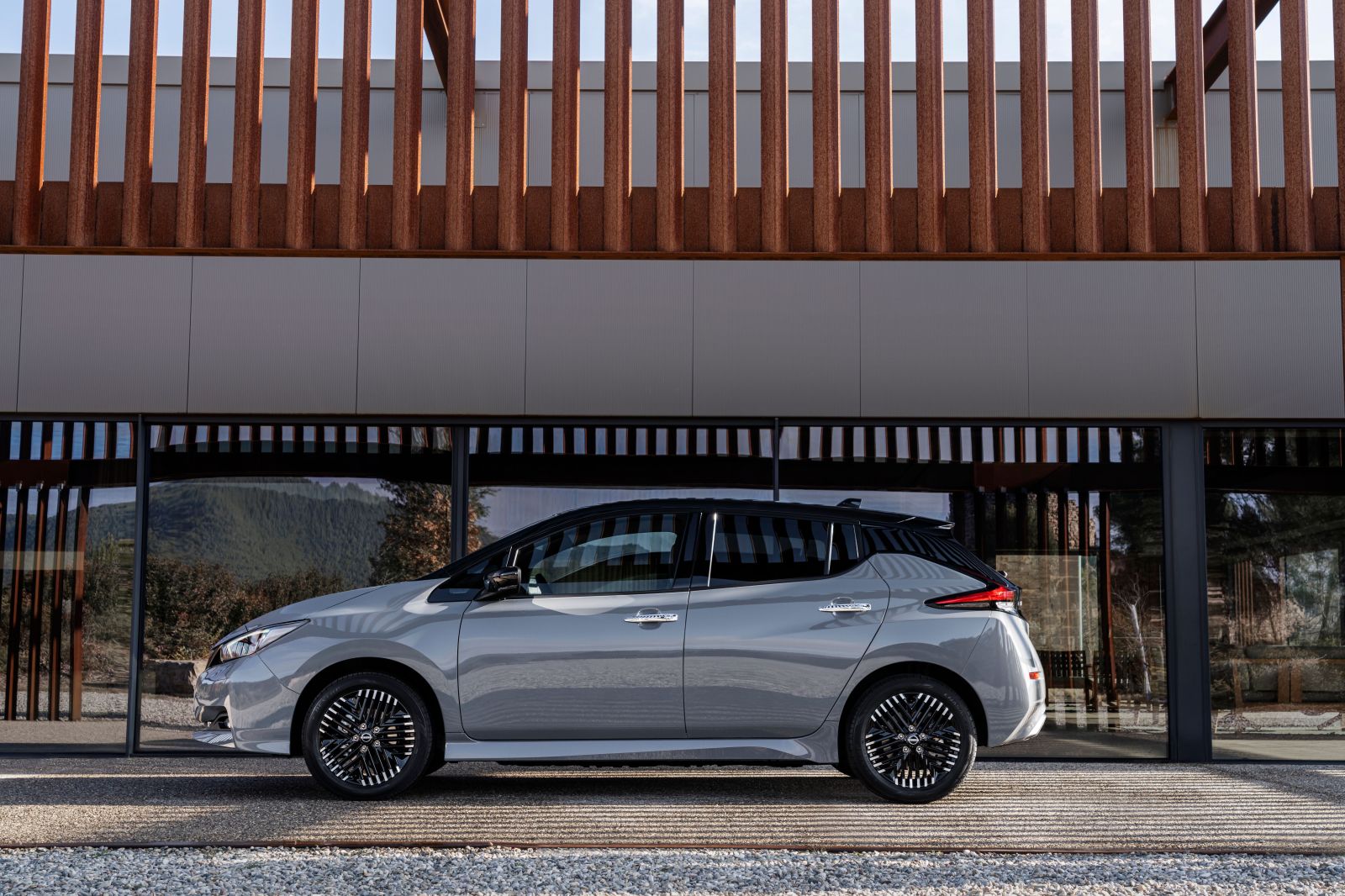
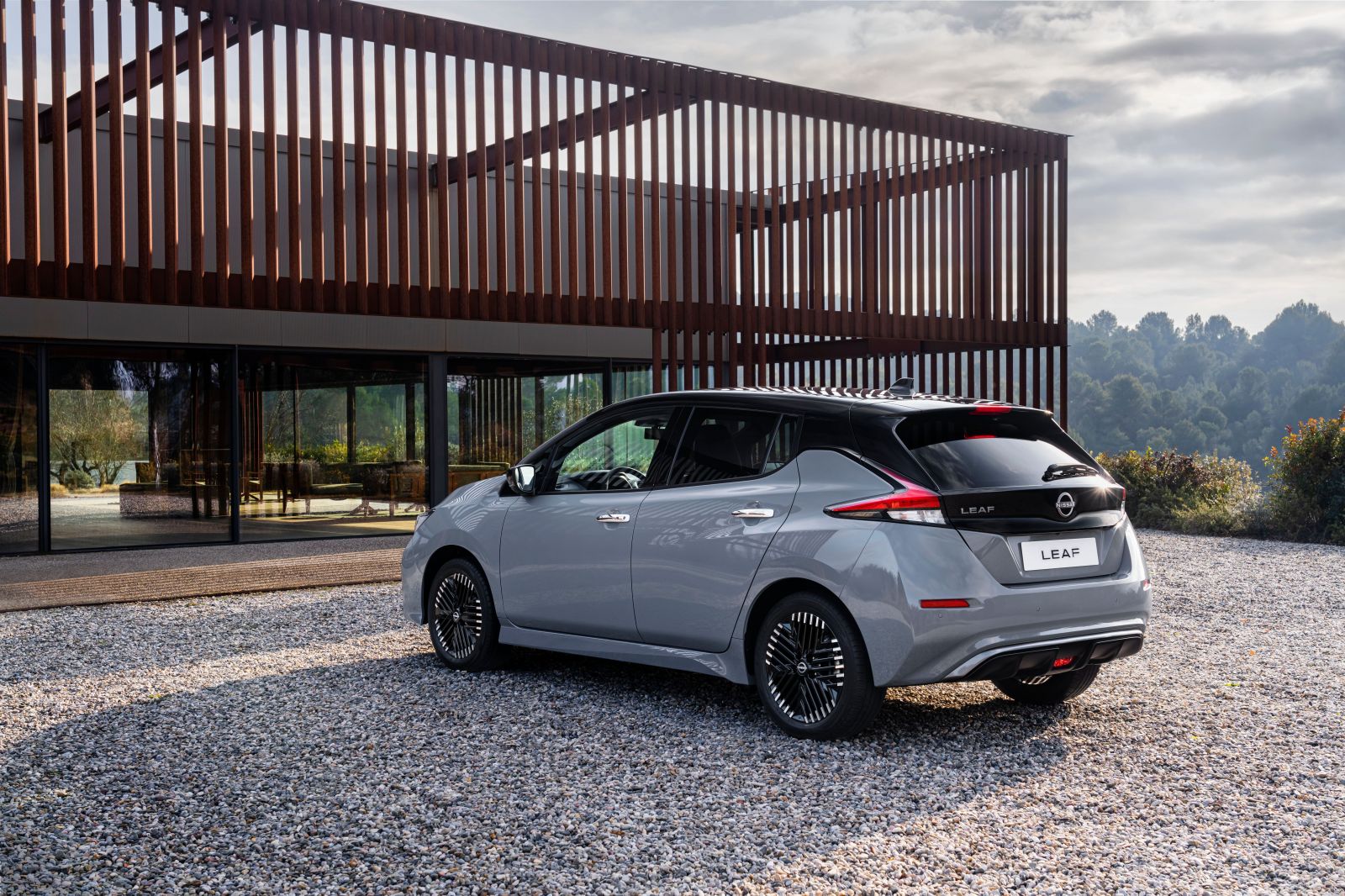
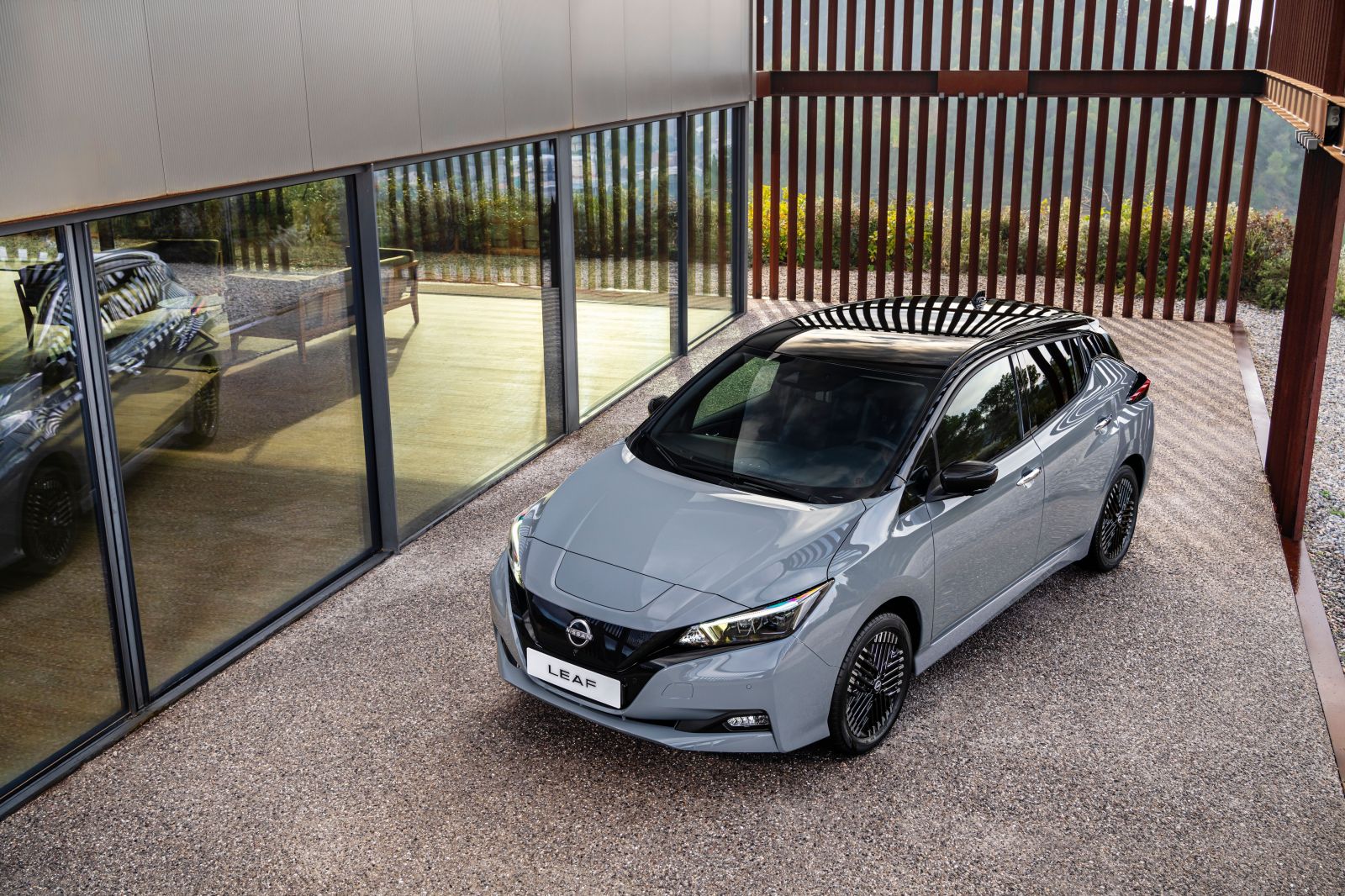
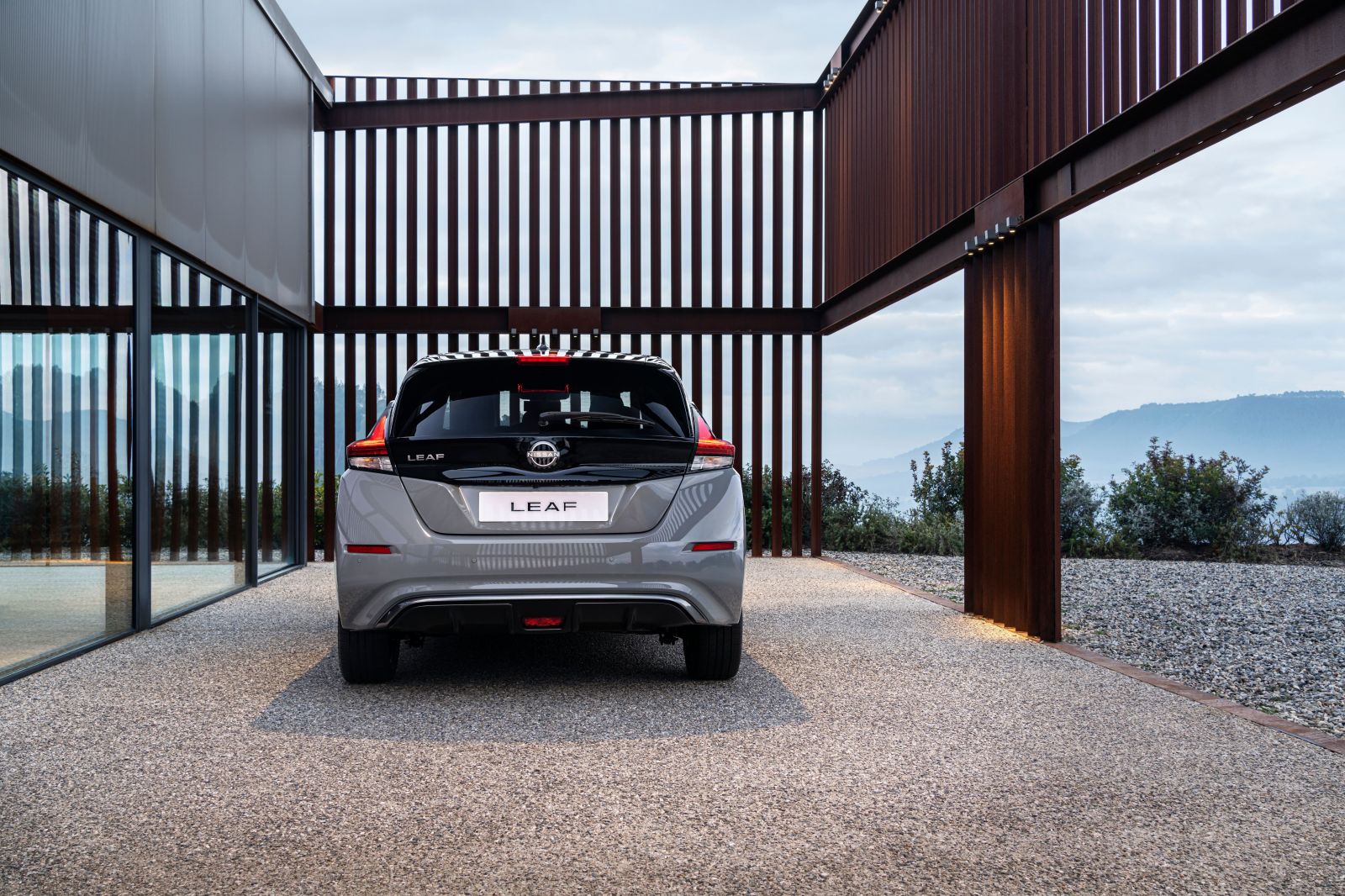
View 39 images
Exterior styling changes include new badging, a revised grille, and an unusual new 17-inch alloy wheel design.
There have also been some tweaks designed to make the Leaf look a bit sportier, including a new rear spoiler, rear diffuser and side sills plus darkened headlight surrounds.
Inside is essentially unchanged, apart from the introduction of a digital rear-view mirror that can be switched back to a conventional mirror at the press of a button.
The new Nissan Leaf has also received a unique in-motion sound, which Nissan calls its Canto sound, that is played outside the vehicle at speeds of less than 30km/h.
It varies in pitch depending on whether the vehicle is accelerating, slowing or reversing.
While Amazon Alexa integration and a ProPilot semi-autonomous driving mode are offered in European-market Leafs, they remain off the table for Australia.
When the second-generation Leaf was first revealed in 2017, the updated cabin was not only a huge step forward for the badge, it was in line with the times.
The overall design and layout still presents quite well and, in typical Nissan fashion, everything is conventional and clean.
With that said, numerous elements look and feel dated, and some of the materials don’t feel up to scratch for a vehicle costing this much.
The attractive three-spoke steering wheel doesn’t adjust for reach which is just plain annoying, and the driver is sat quite high for a non-SUV.
The foot-operated park brake is another reminder the Leaf was designed at the earlier half of the 2010s, though the 7.0-inch supervision cluster with its array of menus is a nice touch – allowing you to see real-time energy usage monitors and cool infographics.
Some of the switchgear looks a little old hat, too, like the climate controls and frosted start button that looks like they came from a 2010 Pathfinder.
Moving into the second row, there’s acceptable amounts of room for two adults with amenities such as heated outboard seats and ISOFIX child seat mounts.
However, you won’t find rear air vents, nor a fold-down centre arm rest with cupholders. Middle-seat passengers also have to content with a storage cubby along the centre of the floor which eats into foot and leg room.
Further back again, the Leaf offers a 405L boot area which is more than say, a Hyundai i30 or Volkswagen Golf, and expands to 1176L with the rear seats folded.
However, the Bose audio system creates a big square hump where the subwoofer lives, with no adjustable floor to make a flat load bay. There’s also a large step over the rear seat backs – let’s just say the Leaf hasn’t been packaged with IKEA trips front of mind.
The Nissan Leaf has a space-saver spare wheel.
The Nissan LEAF is equipped with a 8.0-inch touchscreen infotainment system with wired Android Auto and Apple CarPlay.
The 8.0-inch central touchscreen is well featured in offering in-built navigation, wired Apple CarPlay and Android Auto, as well as AM/FM/DAB+ functionality. However, the graphics of the native software are already looking a little old hat, and it’s not the quickest system to respond to inputs.
The Nissan Leaf wears a five-star ANCAP safety rating based on 2018 tests conducted by Euro NCAP.
Category scores included 93 per cent for adult occupant protection, 85 per cent for child occupant protection, 71 per cent for vulnerable road user protection and 70 per cent for safety assist.
Autonomous emergency braking (City, Interurban and Vulnerable Road User), lane keep assist, lane departure warning and blind-spot monitoring are standard.
Dual frontal, side chest and side curtain airbags are also standard.
| Nissan Leaf | Fuel Type | Combined |
|---|---|---|
| Automatic, 5-door Hatchback, Electric, FWD | Electric | - |
What are the running and servicing costs of a Nissan Leaf?
For both Leaf variants, the first six visits will cost $251, $330, $251, $330, $251 and $330 – totalling $1743 over 72 months or 120,000 kilometres.
Our expert take on Nissan Leaf drivability.
Both versions of the Leaf are powered by a single, electric motor driving the front axle, hooked up to a lithium-ion battery pack.
The standard Leaf features a 110kW/320Nm electric motor and a 40kWh battery, good for a WLTP range of 270km and a 0-100km/h time of 7.9 seconds.
The Leaf e+ features a 160kW/340Nm electric motor and a 62kWh battery, with range increased to 385km and the 0-100km/h time dropped to 6.9 seconds.
Both models require the use of a CHAdeMO charger when topping up the battery with DC power. To go from 20 to 80 per cent on a DC fast charger takes an hour in the Leaf and 1.5 hours in the Leaf e+.
A 7kW AC wallbox charge takes 7.5 hours in the Leaf and 11.5 hours in the Leaf e+.
Charging takes 32 hours using a conventional 10A three-pin wall socket, reducing to 11 hours 30 minutes with a 32A Type 2 AC charger.
The Leaf e+ is compatible with 100kW DC fast charging (the standard Leaf does 50kW), allowing for the battery to be replenished from 20 per cent to 80 per cent in as little as 45 minutes – 15 minutes less than the standard Leaf on a 50kW DC charger.
Should a 50kW DC charger be all you have access to, the Leaf e+ should take 90 minutes to charge from 20-80 per cent.
Nissan claims an energy consumption figure of 18.0kWh/100km.
What colours are available for the Nissan Leaf
The Nissan Leaf range is covered by a five-year, unlimited-kilometre warranty with five years of roadside assist.
Scheduled maintenance is required every 12 months or 20,000km, whichever comes first.
Is this the right car for you? Out experts buy or not guide.
Where expert car reviews meet expert car buying – CarExpert gives you trusted advice, personalised service and real savings on your next new car.
The cheapest Nissan Leaf is the Base that starts from $49,990.
The most expensive Nissan Leaf is the e+ that starts from $60,490.
The best towing capacity of a Nissan Leaf is null kg offered by the following variants: Base and e+.
The largest Nissan Leaf is the Base which measures 1788mm wide, 4490mm in length and sits 1530mm tall.
The most powerful Nissan Leaf is the e+ which has 160kW of power from its null engine.
The Nissan Leaf is built in Great Britain and shipped to Australia.
The heaviest Nissan Leaf is the e+ which weighs 2140 kg (kerb weight).
The Nissan Leaf uses electric.